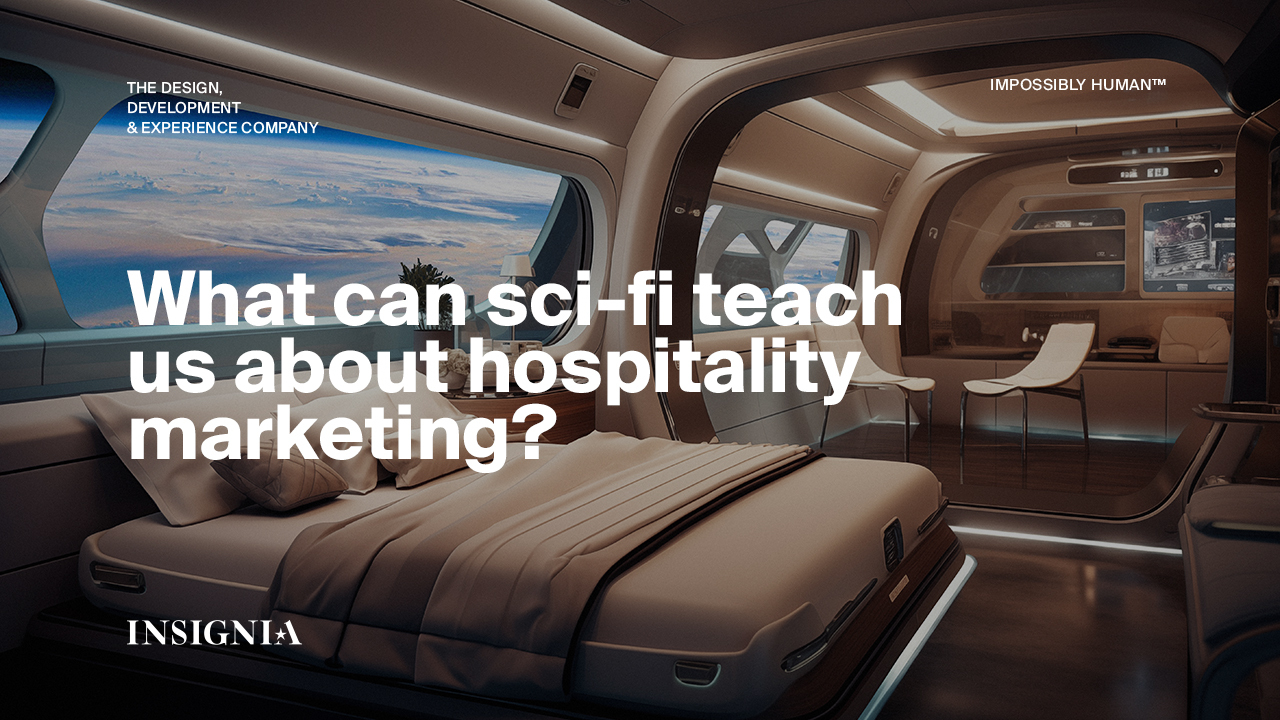In Stanley Kubrick’s 1968 sci-fi classic, “2001 – A Space Odyssey”, there is a scene where the protagonists rendezvous at The Hilton Space Station 5.
Orbiting Earth, this hospitality destination encapsulates a vision of space that is both grandiose and, paradoxically, mundane. Kubrick (a master of cinematic craft) deliberately presents a future where the final frontier feels almost too familiar, a mere extension of Earthly comforts among the stars, lulling us into a false sense of security before the infinite plunge into the unknown that defines the rest of the film.
Contemporary Space Tourism is still in its infancy, and lightyears away from offering anything like the convenient amenities of a Hilton Space Station 5.
But the real question is, should it?
Companies like SpaceX, Blue Origin, Virgin Galactic, and Axiom Space have captured our imaginations not because of the familiar, but because of the unfamiliar. The derring-do of rocketing into the most hostile of all environments, the vacuum of space, and communing with the enigma of the cosmos.
This sense of mystery may be the very essence of terrestrial tourism, and not just its airborne sibling. Space tourism reminds us that at the heart of every journey, whether it’s to a neighboring city or to the edges of our atmosphere, lies the allure of the unexpected. The true essence of travel is not in the comfort of well-trodden paths but in the exhilarating embrace of the unknown.
Which is precisely why over-marketing a destination can be detrimental. If a resort reveals all its secrets in advance, guests are left with nothing to discover upon their arrival.
Let us take VR marketing as an example.
Certainly, the merits of VR in hospitality are notable. Virtual tours offer an immersive preview of hotels, showcasing rooms, amenities, dining spaces, and other attractions, so helping guests gain a tangible sense of the place before making a reservation.
This technology is exceptionally beneficial for showcasing exotic or upscale destinations where the environment and experience are key attractions.
Additionally, VR proves invaluable in event planning within the hospitality industry, enabling clients to virtually explore and conceptualize event spaces for occasions such as weddings or conferences, facilitating a more informed and creative planning process.
But hospitality operators must exercise caution in the balance between revealing and retaining the mystique of their offerings.
The enigmatic monolith from “2001 – A Space Odyssey”, a symbol of the unknown, should be a guiding metaphor in every hospitality experience. This could manifest in various forms. It might be as magnificent as the breathtaking view from a room’s balcony, previously unadvertised and waiting to surprise guests; a hidden gem of a garden, nestled within the hotel grounds; or an exclusive rooftop bar with panoramas of the city, not mentioned online but discovered through exploration.
But the mighty monolith could also take the most unassuming of forms.
An unlisted dessert, perhaps. Or a secret tasting menu crafted by the chef, available only upon request. Cultural and entertainment offerings, too, can play a role. Imagine stumbling upon an impromptu live music performance in the lobby or a local art exhibit in a secluded part of the property.
The unexpected should also resonate in the smallest of details.
The scent of handcrafted soaps in the bathroom, a selection of rare teas, or the offer of a bedtime story for children, read by a local storyteller. These elements, though minor, contribute significantly to the overall sense of discovery.
So, the next time operators are tempted to showcase every aspect of their resorts, with all the pomp and pageantry of Richard Strauss’ ‘Thus Spoke Zarathustra’, they should think again.
By carefully choosing what to reveal in marketing and what to leave for guests to discover, operators can create a layered, enriching experience. The goal should be to strike a balance between providing enough information to attract and reassure guests, while still leaving room for the spontaneous and the serendipitous.
In doing so, a destination keeps the spirit of adventure alive – An essential component of the travel experience and a reminder that, just like the monolith in “2001 – A Space Odyssey”, there is always more to discover.
Insignia Worldwide craft new realities at the intersections of strategy and storytelling, by challenging what is humanly possible and creating what is Impossibly Human.™
